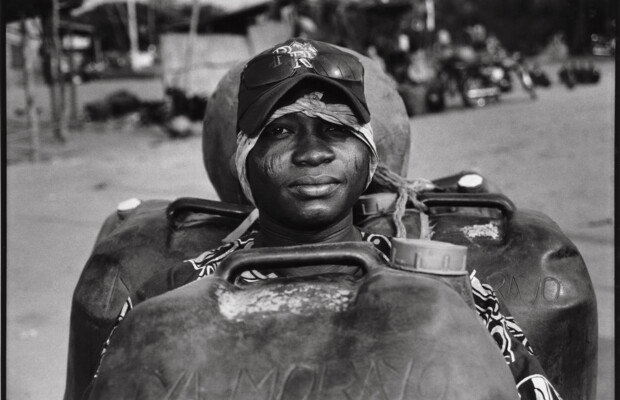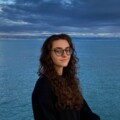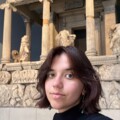Freedom of creativity that fits in a fridge
Conversation with Eric Ginsburg and Jean Blackwell Font - organizers of the Fridge Art Fair Miami

Fridge Art Fair is an annual fair held in Miami and New York; the next edition of Fridge Art Fair will be held from 6th til 10th of December in Miami.
Madara: An art fair that celebrates the fun side of life with little rules, the only one being: that each piece has to fit in a fridge. Why such a rule and a name for the fair?
Eric: Actually, the name Fridge is a playoff of Frieze. In 2013 Frieze had just arrived in New York for the first year, and me and a few other people were sitting in a pub and we decided to try and do our own thing, to play around. It's a bit of a blur to be honest… So I will say - it just happened! Originally we held it at Gallery onetwentyeight in New York, and it's a really small space, so the fridge theme started as a joke - what can we fit into this space? Although now it doesn't seem so funny anymore…
M: So New York was the first location for your fair?
E: Yes, New York.
M: And how many years later came Miami?
E: The same year! But you know - none of it was intentional, it all just happened. Someone just reached out with a proposal, I don't even remember anymore, and we decided - yes, we could bring the fair to Miami! And that's how it happened.
M: Jean, you are not only part of the Fridge team, but you also run your own nonprofit organization collaboARTive. Please share about the work you're doing with the organization and how it connects to Fridge.
Jean: This will be my fourth Fridge Fair in Miami, I met Eric through one of the hotels that was chosen as the venue for the fair. I love Eric, I love his crazy, zany ideas, his zest and his passion for artists. He doesn't want to take money from artists, he just wants to let everyone fit in the fridge. At Fridge everyone's allowed to be creative, and both me and my husband feel the same way. collaboARTive has been running for eight years now, and we provide artists with affordable studio spaces, community support and other resources like grant opportunities. But most importantly: we don't make judgments about the work that artists create. They come to us because they need a studio space, which is so crucial to any artistic practice, but we don't make judgments about the work. I think Eric is the same way because, really, who are we to judge? What we care about is their dedication and their passion. And that's why they fit in the Fridge too - because they believe in their work and they want to show it. Both me and Eric, we believe everyone is creative, and sometimes we forget that, because creativity comes in so many shapes. Just sitting down and playing with glue and scissors for a collage, for example, it stirs up that creative energy and reminds you of when you were little and you weren't afraid to make mistakes, to play and get dirty. Eric is not afraid to come up with crazy ideas, take chances and put giant blow-up flamingos in his art fair. He's breaking all the rules, and people love him for that. And it's the same for my organization - there are no rules. If you love art and you care about it, then we want to work with you.
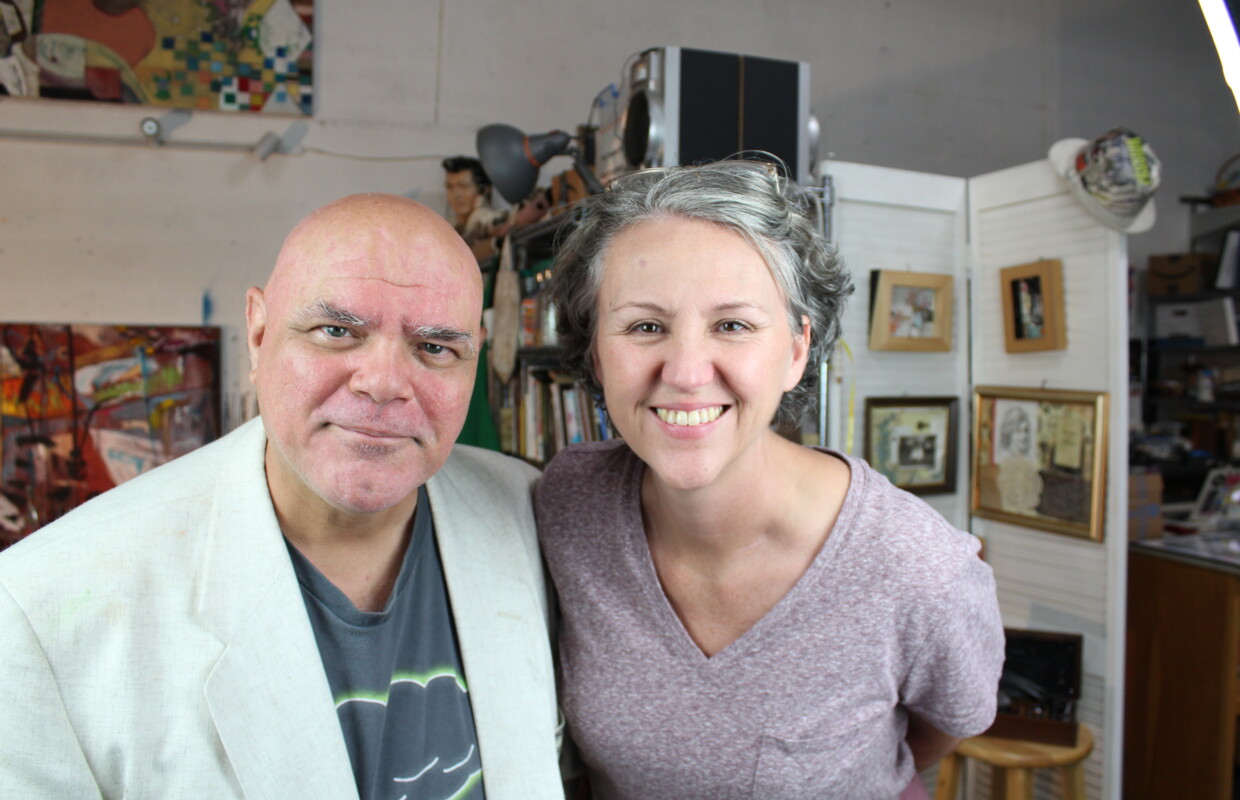
M: So Fridge is a no-rules playground for creativity and the name of the fair came as a reaction to Frieze New York… Would you say that you see Fridge Art Fair as a necessary counterpoint to the more mainstream art fairs?
E: Yes, that's how it started. And, as I already mentioned, it started in onetwentyeight, which is one of the oldest galleries on the Lower East Side. During this time it served as a counterculture space, so Fridge also has this energy. And regarding art fairs - there are more and more fairs that are working with individual artists, but sadly not always artist is the one to gain something. For me, this expression was necessary because there were fairs that I was a part of in one way or the other, and I saw artists paying enormous fees to participate. So many weird things were happening, and they charged so much money. The artists came out from the fair thinking - what the hell did I just do? They're screwed, they fell for false promises. Obviously, it's not all fairs, and it is great that individual artists are involved in the market, but I will never understand charging thousands of dollars from someone who can't really pay their rent, and all by promising something that is simply not achievable. Then again - I'm obviously not a very good businessman.
Yes, business is business, but there's something else as well. There's humanity, too. I feel like artists are the worst people to rip off, we're ripped off enough already, you know?
And during this time it really upset me. Now I think I have learned to understand it a bit more, but it still does upset me. And that's why we're not going after money, and we just let people do what they do. Obviously, that means that funding is always a huge struggle for us, we are always begging for stuff. But that's where Jean comes in - she's amazing with partnerships and production. But yes, I will admit - we rely on the kindness of others.
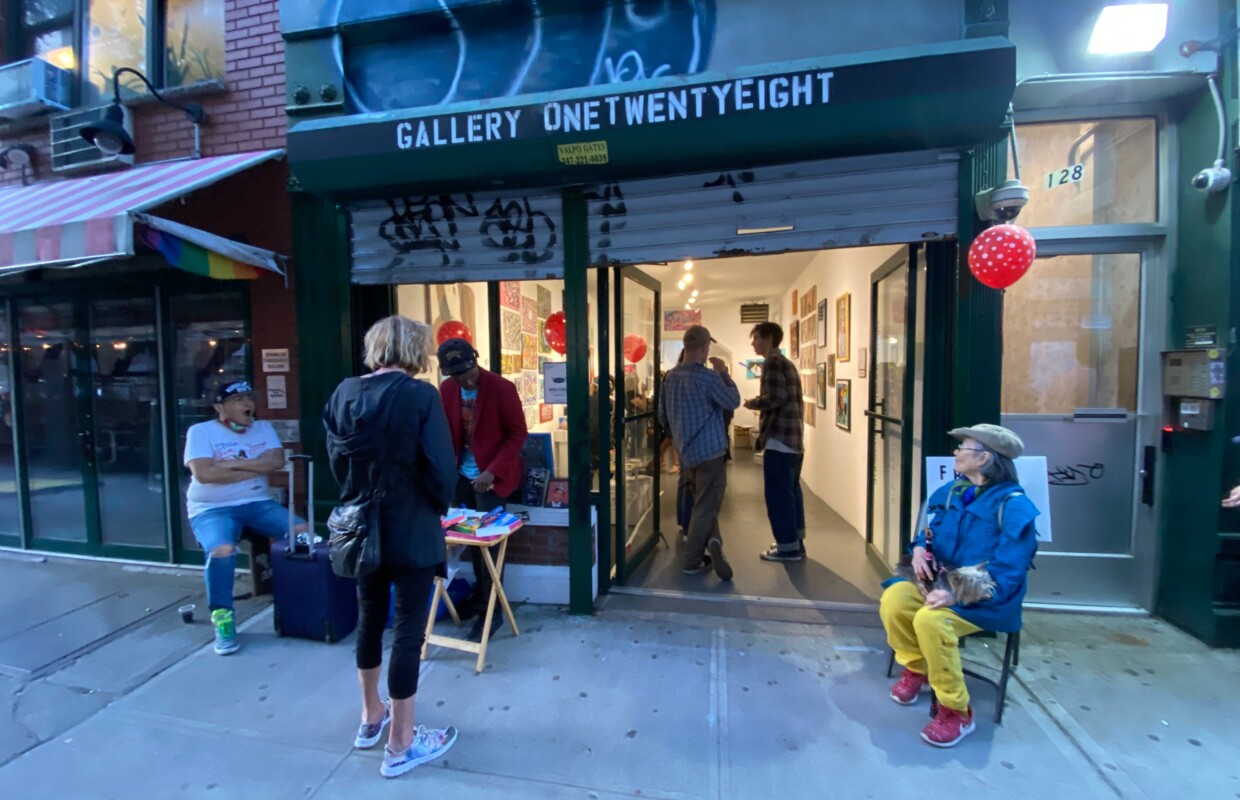
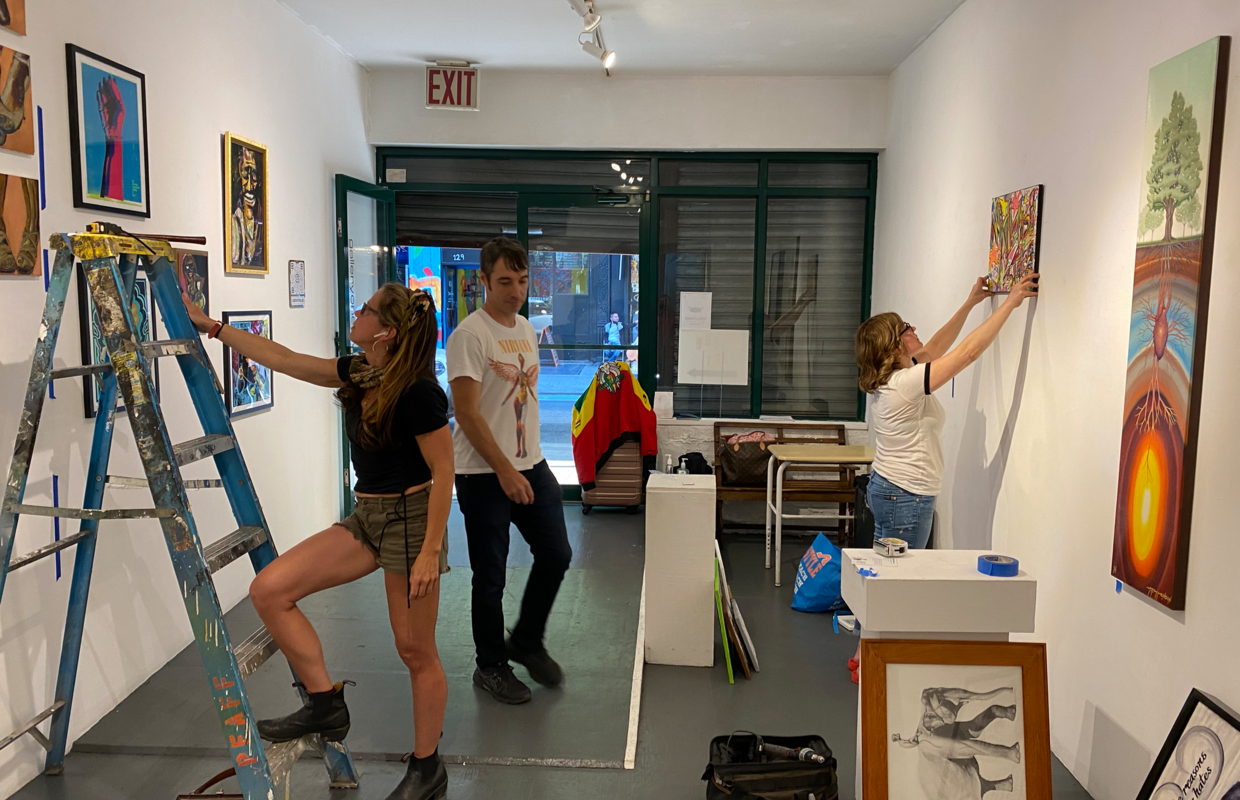
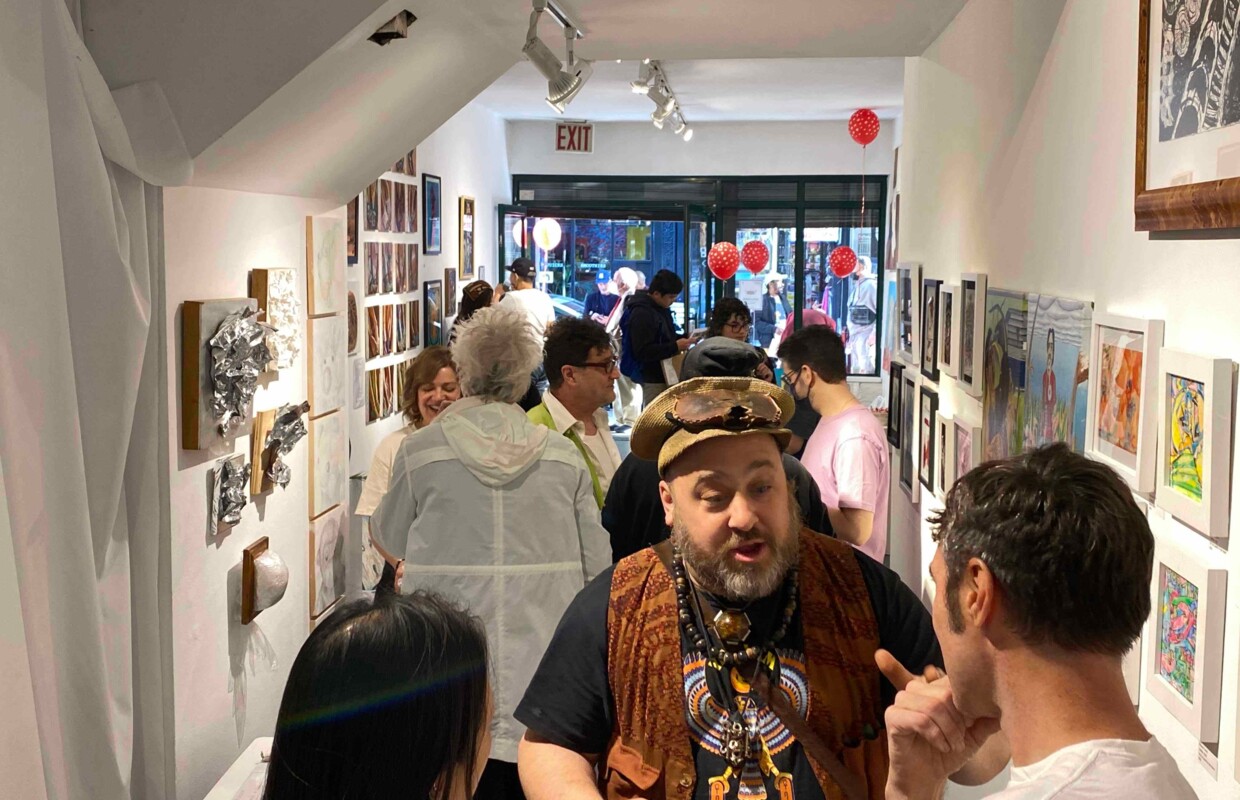
M: It seems that community is a key element both for Eric and the fair, and also for your organization, Jean. Please share about the practices in your work that help engage with your communities.
J: I'm an artist myself, I primarily work with collage and assemblage, and my husband is a painter. The reason why we have those extra nine studios is because we want to have and to be around a community of artists. We know that you need people to bounce ideas off of, and we know that you need to be surrounded by the creative energy that comes from people working. One practice I could share about is the online events we started during COVID. This way our community has grown with people from around the globe, literally. It's just an hour spent in a video call, working together and simply talking about life, about the simple things: what's the weather like in Australia? It's the three Cs for us: creativity, conversation and community. It is the foundation of who we are.
M: Eric, do you have anything to add regarding Fridge?
E: Actually, it wasn't my intention, but I guess that is true - it is a community in the end. For better or for worse, it is a team project. We don't have external people to do this and that; everything is done by us. And that's how it becomes a community. It's sticky, but it's hands on… And hopefully, everyone gets along. And generally speaking, we do.
M: From looking at your website, and reading your statements about Fridge, I have a feeling, and I'm saying this in the best way possible, that you don't treat yourselves too seriously.
E: Oh, absolutely. I mean, we're the popsicle project! How do you go wrong with popsicles, right? I'm actually very proud of this edition.
M: So lets talk about the Popsicle Project: this Miami edition is focused on the LGBTQ+ community. Why? And how will you engage with the topic during the fair?
E: It's all about openness. And, although I hate it, also about politics, especially due to the political situation in Florida, where you can't say “gay”, and where the current governor is homophobic... That's what's happening in this country. The only thing I felt comfortable doing in Florida this year, due to the political situation, was to highlight things that were being boycotted.
It's a big issue, it's a personal issue, and it sucks. It was important for me to make a statement: we are one.
We're also partnering up with the organization Buddy System, who are fighting another huge issue: food insecurity.
M: In your view, can art fairs serve as a vehicle for civic activism and social change?
J: That's a good question. Part of the art scene is also engraved with a capitalistic approach, where art is about making money. For me and Eric, the Fridge Fair is an equalizer. It's a democratizer in terms of art and community. And I think we need more people like Eric, we need more Fridge Fair crazy ideas that become something that lasts for 10 years plus. So I believe there is a way for art fairs to bring change, but definitely not your traditional art fairs.
E: I will second what Jean is saying. Art fairs can be extremely exclusive. That's the one issue with art: it's supposed to bring people together, but it can also separate. And if you ask me if huge art fairs like Art Basel or Frieze instigate change? Maybe. I don't know. They certainly have programs that talk about important topics, about climate crisis, about LGBTQ+, about racial issues… they all have something, but I can't comment on whether they work. And sadly I think part of it is just for show. But maybe that's also fine. It's something. So I just want to clarify: it's good that it's there, that someone is talking about this.

M: What is the future you'd wish for Fridge? Are you planning to expand?
E: I've gone back and forth. It's often a struggle, it takes so much work to put the fair together, but it's fun too. I don't know. For now, I would say our focus is to make the best of what we can from Miami and New York. But I really don't know - let's see what happens. Either way, when thinking about potentially expanding, it's important that Fridge stays Fridge, it has to keep the same qualities, same quirkiness.
M: After the conversation we've just had, it seems that you take good care of the artists you work with. On behalf of the artists at our platform: how can someone join the community you have created?
E: Just send us an email! Send us a couple of images of your works and a website if you have it. We don't have a strict application process, so just reach out and keep bugging us. I probably shouldn't be saying that... But it's the truth! As long as you're nice and dedicated - you're in!
Share the post:




